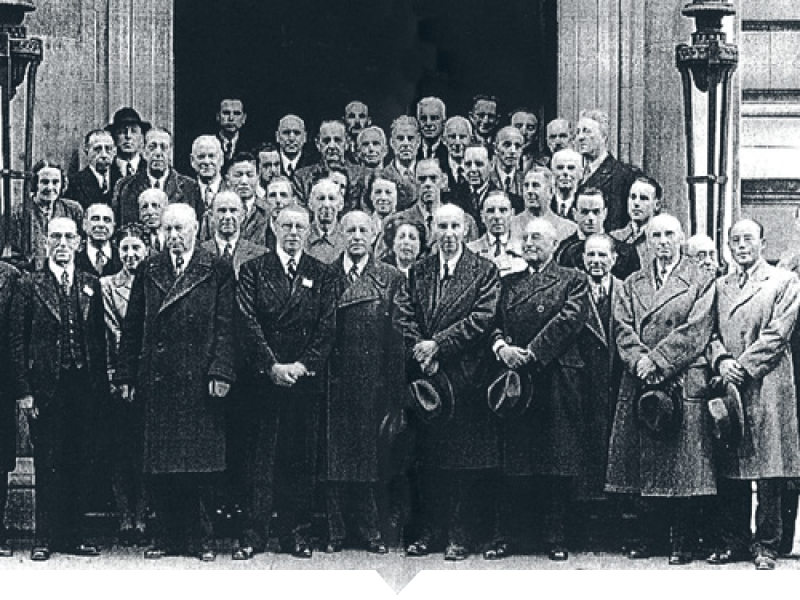As the first in our 3-part series about the upcoming changes to ISO 9001 and ISO 14001 and the introduction of ISO 45001, we’d like to introduce to you the organisation behind the standards – the International Organisation for Standardization (ISO).
What is ISO?
ISO (International Organization for Standardization) is the world’s largest developer of voluntary International Standards. These standards give state of the art specifications for products, services and good practice, helping to make industries more efficient and effective. Developed through global consensus, they help to break down barriers to international trade.
What does ISO do?
Since ISO was founded in 1947, they have published more than 19 500 International Standards covering almost all aspects of technology and business. ISO standards impact all our lives, from food safety to computers, and agriculture to health care.
Who makes up ISO?
Founders of ISO, London 1946
ISO are a network of national standards bodies. These national standards bodies make up the ISO membership, and they represent ISO in their country.
How does ISO work?
ISO is an independent, non-governmental organization made up of members from the national standards bodies of member countries with a Central Secretariat in Geneva, Switzerland, that coordinates the system.
Where did ISO come from?
The ISO story began in 1946 when delegates from 25 countries met at the Institute of Civil Engineers in London and decided to create a new international organization ‘to facilitate the international coordination and unification of industrial standards’ (source: ISO). In February 1947 the new organisation, ISO, officially began operations. Today ISO have members from 161 countries and 3 368 technical bodies to take care of standard development. More than 150 people work full-time for ISO’s Central Secretariat in Geneva, Switzerland.
What does ‘ISO’ stand for?
ISO publishes its first standard on freight containers in 1968
Because ‘International Organization for Standardization’ would have different acronyms in different languages (IOS in English, OIN in French for Organisation Internationale de Normalisation), the founders decided to give it the short form ISO. ISO is derived from the Greek isos, meaning equal. Whatever the country, whatever the language, the short form of our name is always ISO. For more information, visit the ISO website.
Related Articles
https://risktrainingprofessionals.com/new-iso-high-level-structure-mean/
https://risktrainingprofessionals.com/part-3-changing-iso-standards/
Image credits: Friendship Amoung Equals – Recollections from ISO’s First Fifty Years. (1997) Accessed http://www.iso.org/iso/2012_friendship_among_equals.pdf
Feature Image: Central Secretariat premises in Geneva. (2016) Accessed http://www.iso.org/iso/home/news_index/mediakit.html




